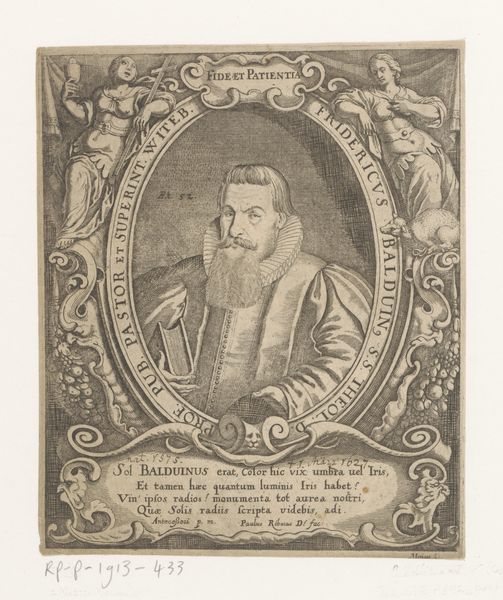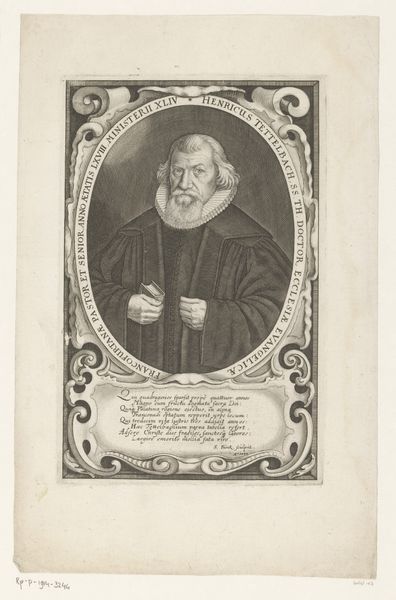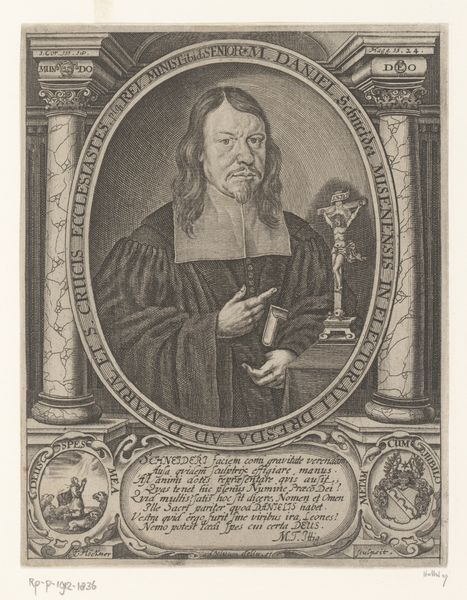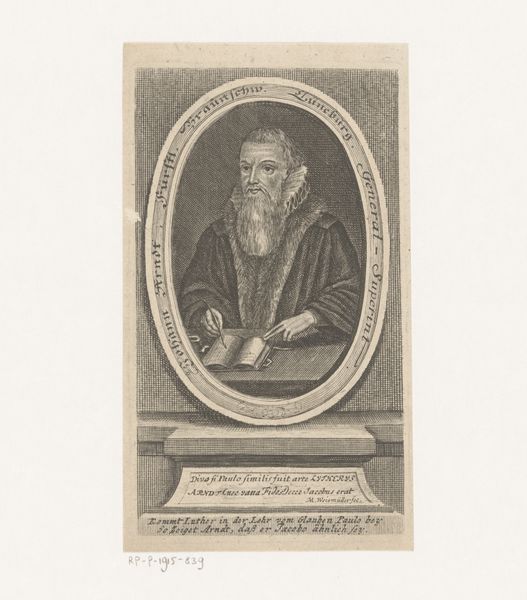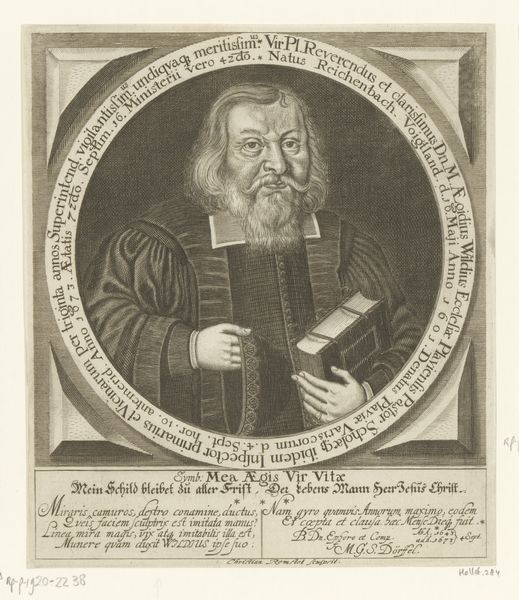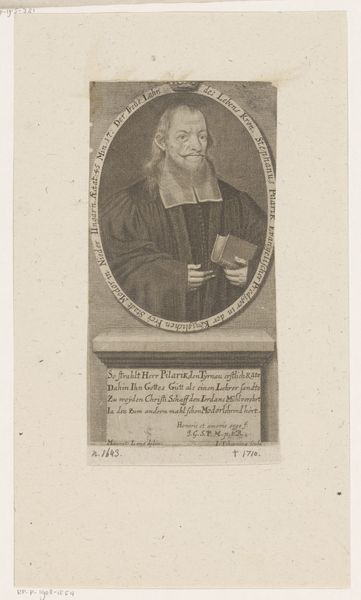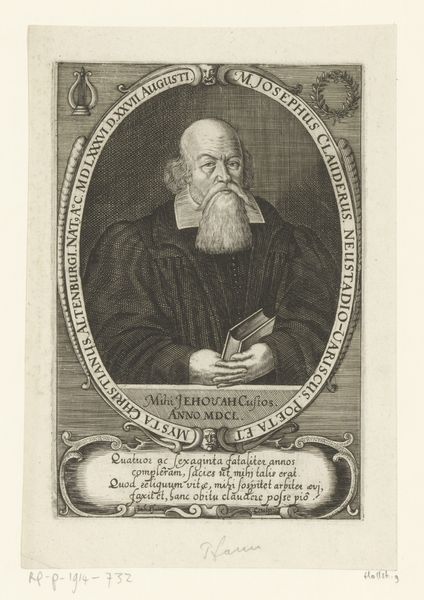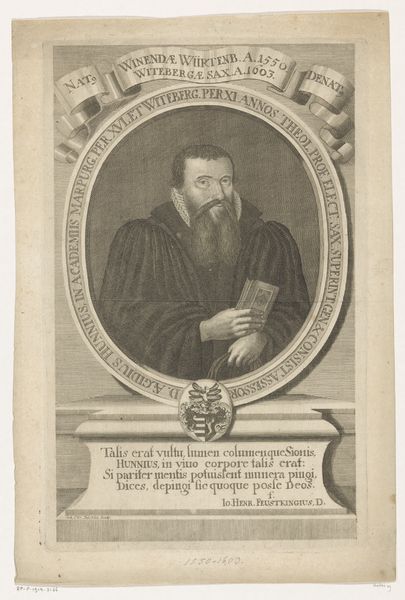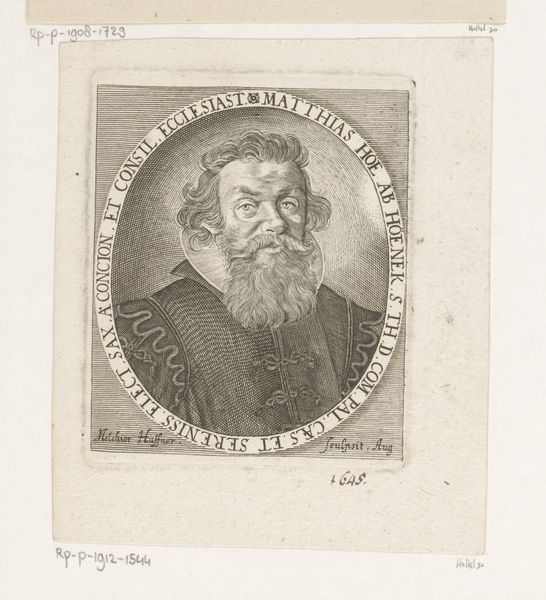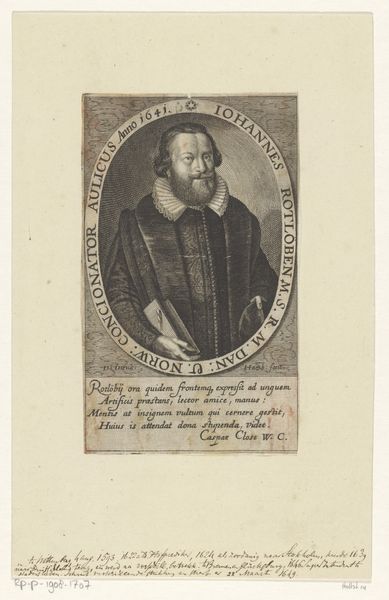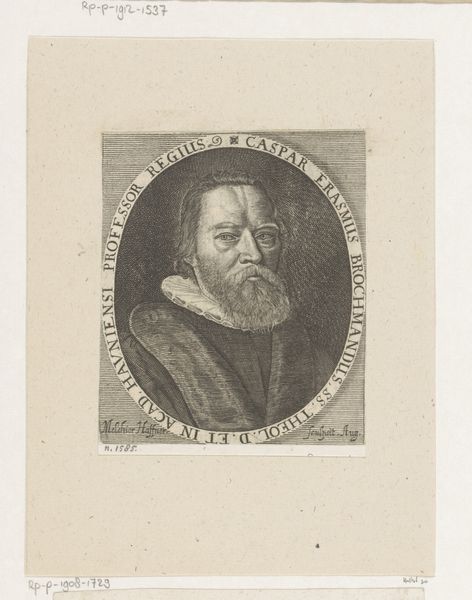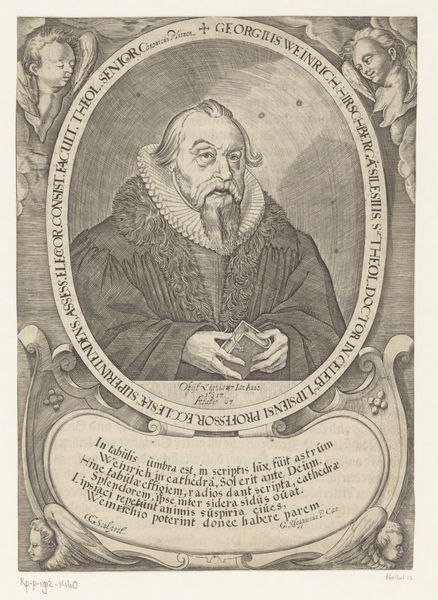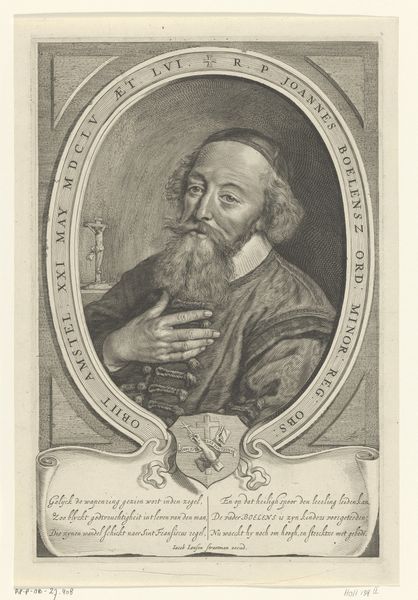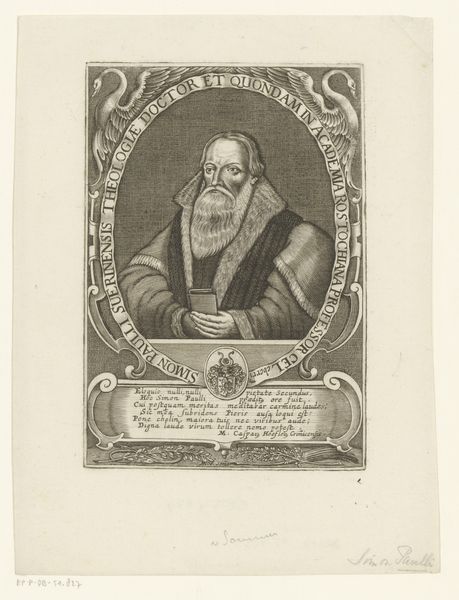
drawing, engraving
#
portrait
#
drawing
#
aged paper
#
toned paper
#
baroque
#
book
#
old engraving style
#
framed image
#
engraving
#
historical font
Dimensions: height 187 mm, width 152 mm
Copyright: Rijks Museum: Open Domain
Editor: This is "Portret van Daniel I Schneider" by Johann Alexander Böner, an engraving from sometime between 1665 and 1720, now at the Rijksmuseum. The precision of the line work is striking. How do you approach a piece like this? Curator: From a formalist perspective, it is essential to first analyze the interplay of lines and shapes. Notice how the artist uses varied line weights to create depth and texture, particularly in rendering the sitter’s robes and facial features. Editor: I see what you mean about the robes and face, but also how the pillars are so solid through line and shape. The contrast is impressive. Curator: Exactly. Then, observe the composition; the portrait is framed within an oval, itself set within a rectangular decorative border. How does this juxtaposition of shapes affect your reading of the work? Editor: It compartmentalizes the information almost, setting apart the central figure from other... symbolic elements? Curator: Precisely! These frames within frames create visual layers, guiding the viewer's eye and organizing the different aspects of the sitter's identity and status. We also need to acknowledge the impact of the monochrome palette. The tonal variations achieved through the engraving technique produce an image of considerable richness. What about that intrigues you? Editor: Well, that richness suggests even just one tone offers boundless opportunity if used with rigor, demanding acute observation and an aptitude to interpret the structure of what you’re representing, and find tone within that! Curator: Indeed. By attending to the formal qualities of the engraving – line, shape, composition, and tone – we can start to unpack its complexity and appreciate its artistic merit beyond mere representation. It is an interesting challenge, don't you agree? Editor: It is, and I definitely have a deeper appreciation for what to look for, now!
Comments
No comments
Be the first to comment and join the conversation on the ultimate creative platform.
